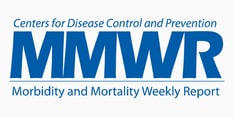Children with autism and one or more genetic variants associated with their diagnosis may be less likely to receive mental health care than children with autism without a genetic diagnosis, a proof-of-concept study reveals.
In a retrospective cohort study of 415 children and youth with autism, patients with an autism-associated genomic variant were less likely than those without such a diagnosis to have received care from a psychiatrist (19.3% vs 34.3%; P = .01). Healthcare costs were similar for patients with and those without a genetic variant, however.
The study "highlights the feasibility and potential value" of linking genomic data and health system data "to understand health service needs, disparities, and health trajectories in individuals with neurodevelopmental conditions," wrote the investigators.

"Mental health care access is a top priority for the autistic community," study author Danielle Baribeau, MD, PhD, a psychiatrist at Holland Bloorview Kids Rehabilitation Hospital in Toronto, Ontario, Canada, told Medscape Medical News. "We were interested in understanding how genetic testing in autism could be useful to anticipate long-term health challenges and care needs, beyond an autism diagnosis."
The study was published online August 1 in Autism Research.
Real-World Data
The investigators retrospectively examined 415 young people with autism who participated in the Province of Ontario Neurodevelopmental Disorders (POND) Network, which collects genome sequencing and other data.
POND study participants were ethnically diverse, and the sample was comparable to the general Ontario population. Participants were White (62%), Jewish (8%), Black (6%), Chinese (5%), aboriginal (4%), Arab (2%), East Asian (1%), South Asian (5%), Southeast Asian (1%), West Asian (1%), Filipino (2%), Japanese (1%), Korean (1%), Latin American/Hispanic (5%), and other (3%).
The team linked participant data to provincial health administrative databases to gather real-world evidence on participants' types of medical visits, healthcare costs, and the number of complex chronic medical problems during a 3-year period. They then compared health administrative data between participants with and without a rare genetic variant in at least one of 74 genes associated with autism.
The researchers found no statistically significant differences in age, sex, socioeconomic status, or clinical characteristics between participants with autism with and without one or more rare high-impact variants affecting an autism-associated gene.
However, the 83 participants (20%) with a rare variant were less likely to have received psychiatric care, including an outpatient mental health visit (66.3% vs 77.1%; P = .04). As noted, median healthcare costs were similar between groups ($5589 vs $4938), and genetic status was not associated with odds of being a high-cost participant (top 20% of costs). Furthermore, there were no between-group differences in the proportion of patients with complex chronic medical conditions.
The authors noted that the disparities in psychiatric care "could suggest differences in autism ascertainment pathways (medical vs. psychiatric assessments), diagnostic overshadowing by the genetic diagnosis and/or intellectual disability, or systemic barriers to receiving psychiatric care for those with rare genetic disorders."
Among the study limitations that the researchers acknowledged were the inability to examine comorbidities individually; the inability to study services provided by health professionals such as social workers, who are not captured by physician billing codes; and a lack of power to detect small differences between groups.
"The field of genomics is rapidly evolving, and genetic data have the potential to inform individualized care," said Baribeau. "Studies like ours set the stage to better understand the clinical utility of using genetic data to understand and anticipate clinical mental healthcare needs. Larger samples will be needed to ensure we have the statistical power to detect important effects."
Setting the Stage
Commenting on the study for Medscape, Zachary Warren, PhD, executive director of the Vanderbilt Kennedy Center Treatment and Research Institute on Autism Spectrum Disorders, said, "The differences between those receiving care could be for a variety of complex reasons that likely warrant further investigation, as the authors suggest.
"The study is really a feasibility and proof-of-concept work. It highlights the potential value of blending personalized genomic approaches with administrative and clinical data streams. However, data with significant clinical implications would come from larger rigorous use of the methodology deployed here."
The study was supported by ICES, the University of Toronto McLaughlin Centre, and the Ontario Brain Institute. Baribeau has received research funds from MapLight Therapeutics. Warren declared no conflicts of interest.
Autism Res. Published online August 1, 2023. Full text
Follow Marilynn Larkin on Twitter: @MarilynnL
For more from the heart.org | Medscape Cardiology, follow us on Twitter and Facebook
For more news, follow Medscape on Facebook, Twitter, Instagram, and YouTube



Comments